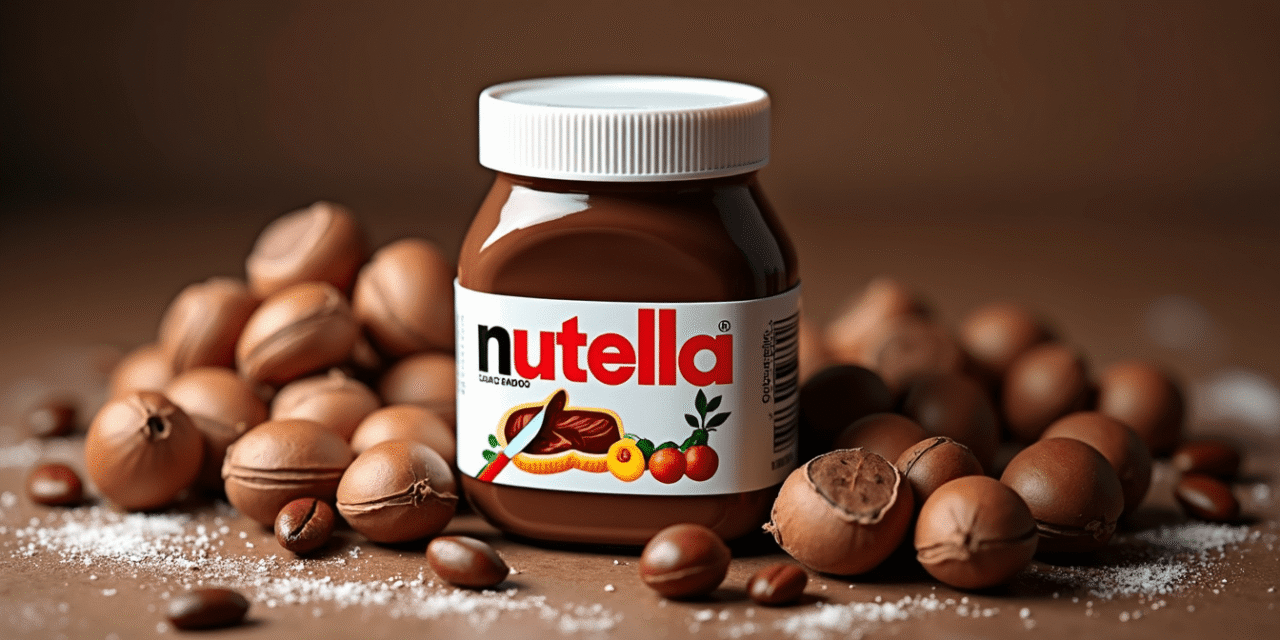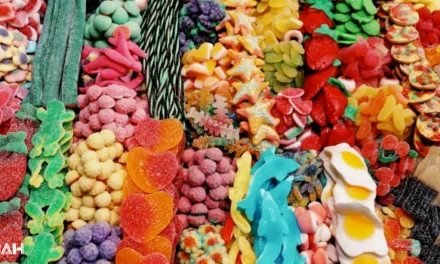As a food enthusiast, I have always been intrigued by the controversies surrounding popular products. One such debate that has caught my attention is the ongoing discussion about Nutella’s halal status. In this article, we will delve into the heart of the matter, exploring the arguments from both sides and shedding light on the complexities of this contentious issue.
The Controversy Surrounding Whether Nutella Is Halal
Nutella is a popular chocolate hazelnut spread made by the Italian company Ferrero. It was first introduced in 1964 and is now sold worldwide. However, there has been some debate around whether Nutella can be considered halal.
Halal refers to foods that adhere to Islamic dietary laws. For a food to be certified halal, it must meet certain standards, including:
- Not containing any pork or pork by-products
- Not containing alcohol
- Being prepared according to Islamic law, which includes reciting Tasmiya or a prayer before slaughtering animals
Some key questions around Nutella’s halal status include:
- Are all the ingredients and production processes halal?
- Does it contain any alcohol or pork derivatives?
- Has it been certified halal in Muslim countries?
There are conflicting views on this from different Islamic authorities. This article will analyze the ingredients, production methods and statements from Ferrero to determine the evidence on both sides of the debate. It will also look at the reasons for the miscommunication on whether Nutella is halal certified or not.
Background on Halal Food Standards
For a food product to be certified halal, it must meet certain dietary restrictions as per Islamic law:
-
It must not contain any pork or pork products. This is because pork is considered haram (impermissible) in Islam.
-
It must not contain alcohol or intoxicating substances. Alcohol is also haram.
-
Any meat or poultry must come from an animal slaughtered according to zabihah guidelines:
-
The animal must be alive prior to slaughter
-
It must be slaughtered by a Muslim
-
The name of Allah must be invoked while slaughtering
-
-
Fish and eggs are generally considered halal, but there are some differences of opinion on certain seafood like shellfish and crustaceans.
-
There is also disagreement among scholars on some food additives like gelatin, emulsifiers, enzymes etc derived from pork sources.
“Muslims who avoid vanilla extract may wish to avoid Nutella. Those comfortable with vanilla extract may find it permissible.”
So the halal status depends on an individual’s standards and which scholarly opinions they choose to follow.
Ingredients in Nutella and Production
Nutella’s main ingredients according to the nutritional information on their website are:
- Sugar
- Palm oil
- Hazelnuts
- Cocoa powder
- Skim milk powder
- Whey powder
The company states that:
“The ingredients we use to make Nutella® such as sugar, palm oil, hazelnuts, cocoa, skimmed milk powder, whey powder, emulsifier and vanillin are all halal.” (Source: https://www.ferrerofoodservice.com/au/en/ask-ferrero/faq)
Ferrero also outlines on their website that:
- Nutella does not contain any pork-derived ingredients
- No alcohol is used during processing or is part of the ingredients
- The whey powder used is halal certified
Additionally:
- The palm oil is sourced from halal certified sources
- Hazelnuts come from Turkey, a predominantly Muslim country
So based on the ingredients statement and manufacturing processes described, Nutella appears to meet the basic criteria for halal standards. However, the debate arises from trace ingredients, sources of additives and the use of vanillin (which can sometimes be derived from non-halal alcohol).
Conflicting Information on Nutella’s Halal Status
Despite Ferrero’s claims that the ingredients in Nutella are halal, there is conflicting information on whether the spread can be considered halal certified:
-
Nutella is certified halal in some countries like Australia and Malaysia. According to the Ferrero website:
“In Australia, Nutella® is halal certified by the Australian Federation of Islamic Councils.” (Source: https://www.ferrerofoodservice.com/au/en/ask-ferrero/faq)
-
However, it is not halal certified in other regions like the UK, Europe, and North America.
-
Opinions among Muslim religious authorities differ:
So while the ingredients seem to be halal on their own, the end product is not certified everywhere. This has led to the divided opinion on whether Muslims can consume Nutella or not.
Ferrero’s Statements on the Issue
Ferrero’s stance on whether Nutella is halal or not has been ambiguous:
-
In 2020, it was reported that Ferrero stated Nutella was not halal-certified on an Instagram post:
“We confirm that none of our Nutella sold worldwide is halal certified. We take no responsibility for misleading information spread by unauthorized third parties regarding this topic.” (Source: https://www.opindia.com/2020/09/nutella-halal-haram-social-media/)
-
However, Ferrero backtracked shortly after and said Nutella is halal, blaming “the complexity of halal certification process” for the miscommunication:
“All Nutella sold worldwide is halal. […] The temporary post was made by mistake by an employee who was not aware of the complexity of the halal certification process.” (Source: https://www.thekashmirmonitor.net/nutella-not-halal-says-company-then-rectifies-error/)
-
So Ferrero’s official stance now appears to be that Nutella is halal-compliant, even if not officially certified in some regions.
This flip-flopping and confusion from the manufacturer itself has added to the ongoing debate among Muslim consumers on whether Nutella can be eaten as per Islamic law.
Frequently Asked Questions – Is Nutella Halal?
Is Nutella Halal?
Yes, Nutella is halal. The chocolate spread is suitable for halal consumption and is enjoyed by many Muslims worldwide.
Is Nutella halal certified?
Yes, Nutella is halal certified. The industrial plants producing Nutella are already halal certified, ensuring that it meets the requirements for halal consumption.
What is the process of certifying the remaining plants?
The remaining plants producing Nutella are undergoing the process of certifying them as halal. Ferrero, the company behind Nutella, is working to clarify and certify all their plants.
Are the ingredients in Nutella halal?
Yes, the ingredients in Nutella are halal. The spread is made with ingredients such as hazelnuts, cocoa powder, and skimmed milk powder, all of which are halal.
Is Nutella halal or haram in Islam?
Nutella is halal in Islam. It has been certified by a third party as meeting the requirements for halal food.
Where is Nutella halal?
Nutella is halal worldwide. It is sold and consumed by Muslims in various countries, including the United States and other parts of the world.
How is Nutella made?
Nutella is made in industrial plants that follow the halal manufacturing process. The ingredients are carefully selected and processed to ensure the final product is halal.
Can you clarify whether Nutella is halal?
Yes, Nutella is halal. It is suitable for halal consumption and is enjoyed by Muslims around the world.
Does Nutella contain palm oil?
Yes, Nutella contains palm oil. However, the palm oil used in Nutella is sourced responsibly and is certified as sustainable.
Is Nutella suitable for Muslims?
Yes, Nutella is suitable for Muslims. It is halal certified and can be consumed by Muslims as part of their dietary preferences.
Conclusion
In summary, there is no consensus within the global Muslim community on whether Nutella can be considered halal:
-
Nutella’s ingredients appear to be halal on their own – it does not contain pork, alcohol or other prohibited substances as per Ferrero’s statements.
-
However, the final product is not universally halal certified, likely due to differences in certification standards across countries.
-
There are conflicting opinions on whether trace amounts of alcohol from vanilla extract are permissible.
-
Ferrero’s contradictory statements on Nutella’s halal status added confusion. They now claim it is halal compliant worldwide, despite not being officially certified everywhere.
So the halal status of Nutella depends on individual interpretation of halal laws:
-
Muslims who strictly avoid any food containing vanilla extract may consider Nutella haram.
-
Those who are comfortable with trace alcohol in flavors may deem it halal.
Until there is consensus among global halal certification bodies, the debate on Nutella’s halal status is likely to continue. Muslim consumers should conduct their own research and consult religious authorities to determine if Nutella suits their personal halal standards.





